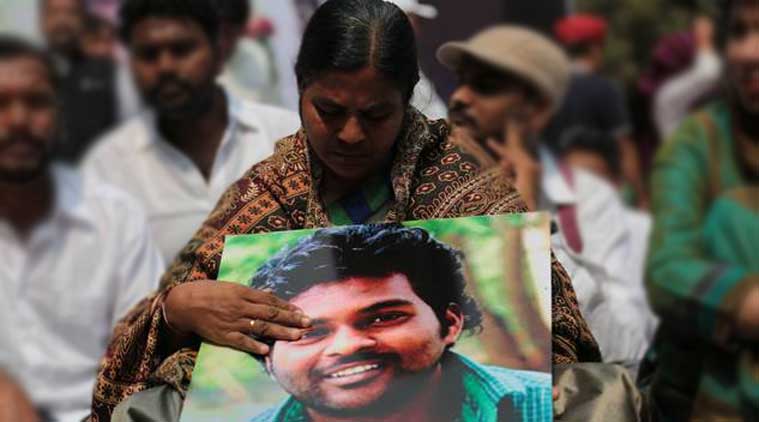
The issue of unemployment has become a regular talking-point for the political opposition in India and one of the many grounds on which it alleges that the ruling BJP has failed the country, especially its youth. However, the issue of dignified and fair conditions of employment is rarely brought up. It seems that the people of the country should not hope for anything beyond the bare minimum, and should be grateful to even have the chance of employment in the first place instead of aspiring to lofty things like fair wages, strictly limited work hours, occupational protections, job security, and the like.
The ruling BJP’s rhetoric and policies are wholly given over to capitalist interests against the workers and socially suppressed sections. The labour law ‘reforms’ that it rammed through in 2019-2020 clearly demonstrate its prioritization of private profit and agenda of worker disempowerment. These ‘reforms’ outlined a clear division of interests between the owning class and the workers.
Then comes the wholesale way in which public enterprises has been privatized. The government pursues a relentless policy of disinvestment and accelerated the neoliberal agenda of the transfer of wealth from public to private hands, though it has achieved its own disinvestment targets in only two of its nine years in power. The need to serve the public is not premised on a sense of constitutional duty and accountability but rather the reward of revenues and profits.
I will focus this piece on another anti-democratic facet of privatization, i.e., the experience of employment. The anti-democratic nature of privatization does not limit itself simply to the question of ownership but is also expressed in the oppressive and exploitative conditions in the workplace.
Private employment is undemocratic
Even if ‘white-collar’ jobs are lucrative and the often the best available channel of mobility for women, minorities, and the caste-oppressed, its conditions are a continuation of the exploitation of labour in so-called “unskilled” work.
For working professionals, especially the youth who jump from being students to ‘freshers’ and often straddle both roles, there is only the choice between the devil and deep sea. While an increasing number contend with unemployment and the social and financial pressures it creates, those who manage to land a job are underpaid, demotivated, and completely expendable.
The power imbalance between employers and their employees is abysmally large, both within the workplace and in the larger regulatory environment where the government only cares about profitability of enterprises and a steady supply of pacified employees instead of those that assert their rights. If the government only looks to the private sector to ‘create employment’ then it is effectively enforcing a social model wherein those with capital (financial and social) and generational wealth have an insurmountable leverage over those without.
Corporates, startups, and labour aristocracy
The workforce of the formal economy reflects the hierarchies of society both in its functioning and its composition. Decision-making and ownership is usually concentrated with upper-caste men while women face a proven pay gap and sexual harassment. There is significant under-representation of Dalits, Adivasis, minorities, and women in highly visible and impactful sectors like IT and the media. The pervasive “sir and ma’am” culture of workplaces shows that the Indian cultural obsession with status and subordination continues unchecked in these spaces.
The process and outcomes of education are also expected to be wholly attuned to what will make young people ‘employable’, which means that the demand for employees with certain skills to the exclusion of others furthers the commodification and induces the culture of ‘cut-throat competition’ in schools and colleges. Millions of adolescents are pushed into exploitative private schools and ‘coaching’ businesses in a mad rush to train them to fill roles in tech, finance, and management while the social sciences and humanities are discouraged due to being unable to guarantee a ‘respectable’ employment and the political necessity of reserving issues of history, politics, society, and culture solely for yellow journalists and troll armies of the right-wing.
Those who stick to fields involving creative and critical thinking find that the corporate and start-up ecosystem devalues their work even if it is indispensable. Despite the fact that no product or service can succeed without marketing and outreach, the skills that go into creative campaigns, writing, content strategizing, etc. are not paid for in proportion to the returns they get for the employers. This is rationalized by arguing that studying humanities is a bad career choice, but in reality, it is a simple case of not paying for what you want anyway.
Even in the coveted IT sector, the trend of wealth flowing upwards remains intact, as the pay gap between the highest and lowest paid employees of companies keeps increasing. The value generated by the work of millions is appropriated by the higher management and shareholders while the rest work for a pittance. This mirrors the realities of economic inequality in India which is one of the most blatant and extreme in the world.
Despite all this, the corporate and startup ecosystem represents those who are the social cream of the country. Their Brahmanical mindset primes them to support right-wing Hindutva and makes them loath to identify with the working class or act in solidarity with them. In fact, their predominantly upper-caste savarna backgrounds makes it nearly impossible for them to have solidarity with anyone outside their birth-based communities, for such is the structure of caste itself. Their brand of ethno-nationalism is opportunistic and perfectly compatible with moving abroad at the first chance of a better life, which explains the India diaspora’s preponderance.
Like all strains of fascism, Hindutva is in lockstep with capitalism and both systems are given the full ideological, moral, and political backing of India’s savarna petite-bourgeoise labour aristocracy. This self-proclaimed middle-class revels in a mythos of self-righteous victimization where the plot and protagonist change faster than in Ovid’s Metamorphosis. At times they become persecuted “taxpayers”, at others they are the supposed “oppressed Hindus” of yore being trampled underfoot by Muslims, and then there’s the usual raised hackles over the plight of the ‘general category’, a tantrum that has finally secured the unjust EWS quota for them. This is a group that is firmly entrenched in the status-quo and completely taken in by visions of being self-made, Aatmanirbhar entrepreneurs.
Socialism, the only answer
Capitalism will reveal its brutal character wherever the masses are disempowered and divided. The structures of liberal democracy have only compromised with fascist political tendencies and its institutions are crumbling or complicit in these times of fascist ascendency and assault. A new Left that is progressive and socially radical needs to resolve the conflicts of class vs. identity on priority and take on the saffron capitalists. The choice is simple: socialism or barbarism?
Arjun Banerjee is a writer and journalist.









































